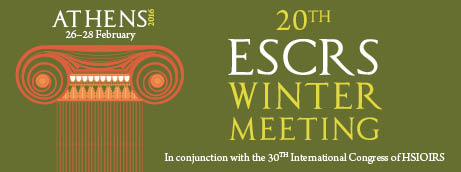Posters
(results will display both Free Papers & Poster)
Refractive outcomes after PTK
Poster Details
First Author: I.Iordanova BULGARIA
Co Author(s): D. Mitova
Abstract Details
Purpose:
The aim of this retrospective study is to assess the visual results and patient satisfaction after PTK procedure
Setting:
St. Petka Eye Clinic Varna, Bulgaria
Methods:
A ten year retrospective study was performed (2004-2014). We used either VisxStarS4 or Schwind Amaris Eximer Laser to perform standard PTK procedure, followed by LASEK for the correction of the residual refractive error (hypermetropic shift). The analysis included 29 eyes of 26 patients. 20 of them were with familial corneal dystrophy, 5-with posttraumatic corneal irregularities, 1-with postherpetic leucoma.Visual accuity for far and near distance was measured with the Snellen chart, contrast sensitivity- with F.A.C.T. 301 and patient satisfaction was assessed with the help of a questionair.
Results:
The mean visual improvement due to the procedure is from 0, 22 to 0, 56. Patients underwent one or two PTK procedures, followed by LASEK as a refractive correction of hypermetropia (a result of flattening of the cornea). Only one patient needed PKP (keratoplasty) as a result of worsening of dystrophy 10 years after the initial PTK. Four eyes received PTK procedure over a corneal transplant because of recurrence of the dystrophy.
Conclusions:
PTK leads to significant visual improvement and hence quality of life for patients with corneal opacities due to different causes. It can eliminate or postpone the need of keratoplasty. Patient satisfaction is high due to the significant improvement of the quality of vision -visual acuity, contrast sensitivity, reduction of corneal aberrations. Rapid rehabilitation is another issue that makes the procedure preferred over PKP as a refractive option in selected cases FINANCIAL DISCLOUSRE: NONE


